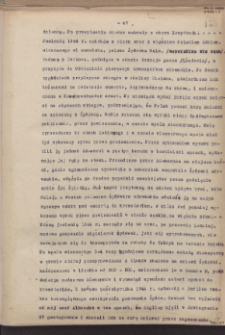Selektion an der Rampe in Auschwitz-Birkenau
| Edition name | Date |
|---|---|
| Rachwał Stanisława; 29.06.1906, Rudki (dziś: Ukraina), Selekcja – rampa w Auschwitz-Birkenau | 12.03.2025 |
Title:
Witness (date and place of birth):
Location:
Nakło nad Notecią ; Bydgoszcz ; Rajsko (pow. oświęcimski) ; KL Buchenwald (Niemcy) ; Poznań ; Sosnowiec (woj. śląskie), Obóz pracy przymusowej (filia KL Auschwitz-Birkenau) ; Poręba (pow. pszczyński) ; Kraków, Siedziba Gestapo, ul. Pomorska 2 ; Kraków, Więzienie Montelupich, ul. Montelupich 7 ; KL Sachsenhausen (Oranienburg, Niemcy) ; Bochnia, Dworzec kolejowy ; Kraków, ul. Sobieskiego 5 ; KL Auschwitz I ; KL Sachsenhausen (Oranienburg, Niemcy) ; KL Auschwitz II (Birkenau), Kanada ; KL Auschwitz I, Komora gazowa i krematorium nr I ; KL Auschwitz II (Birkenau), Komory gazowe i krematoria nr II, III, IV, V ; KL Auschwitz II (Birkenau), Sauna ; KL Auschwitz I, Blok 10 ; KL Auschwitz II (Birkenau) ; KL Auschwitz II (Birkenau), „Biały Domek” ; KL Auschwitz-Birkenau, Rampa nr II ; KL Auschwitz II (Birkenau), Familienlager Theresienstadt ; KL Auschwitz II (Birkenau), Zigeunerfamilienlager ; KL Auschwitz II (Birkenau), „Czerwony Domek” ; Niemiecki obóz zagłady Auschwitz-Birkenau ; KL Auschwitz-Birkenau, Lagerhaus ; Niemiecki obóz zagłady Bełżec ; Bruksela (Belgia) ; Niemiecki obóz zagłady Majdanek ; Niemiecki obóz zagłady Treblinka ; KL Herzogenbusch (Holandia) ; KL Treblinka ; Wodzisław Śląski ; KL Plaszow ; Drezdenko ; Drancy (Francja) ; Berlin (Niemcy) ; Brzeszcze ; Zagrzeb (Chorwacja) ; Łódź ; KL Theresienstadt (Czechy) ; Pszczyna
German administration units:
Landkreis Perg (Drittes Reich) ; Landkreis Weimar (Drittes Reich) ; Landkreis Neustrelitz (Drittes Reich) ; Kreishauptmannschaft Rawa Ruska (Generalgouvernement) ; Landkreis Rybnik (Drittes Reich) ; Stadtkreis Berlin (Drittes Reich)
Victims:
Polen ; Zivilbevölkerung ; Kinder ; Sinti und Roma ; Kriegsgefangene ; Russen/Sowjets ; Intelligenz ; Ältere Menschen ; Deutsche ; Kranke ; Ukrainer ; Slowaken ; Griechen ; Behinderte ; Ungarn ; Juden ; Italiener ; Tschechen ; Franzosen ; Belgier ; Holländer
Perpetrators:
SS ; Volksdeutsche/Volksliste ; Nationalsozialistische Deutsche Arbeiterpartei, NSDAP ; Wehrmacht ; Werwolf
Crimes:
Hinrichtung ; Prügel ; Deportationen ; Verhaftungen ; Erschießung ; Gaskammern ; Einäscherung von Leichen ; Brutale Verhöre/Folter ; Geheimdienstliche Tätigkeit für das Dritte Reich ; Vernichtung und Hungersnot ; Zwangsarbeit ; Razzien ; Massengräber ; Medizinische Experimente ; Vergewaltigung ; Erhängen ; Germanisierungspolitik ; Todesmärsche ; Viehwaggons ; Medizinische Experimente (Spritzen)
Place:
Content:
Verband für den bewaffneten Kampf/polnische Heimatarmee (Związek Walki Zbrojnej/Armia Krajowa) ; Widerstandskampf der Zivilbevölkerung ; Gesundheitswesen ; Warschauer Aufstand ; Sonderaktion „Ungarn“ ; Verwischung von Spuren ; Holocaust
Object type:
File creator:
Archive resources provider:
File no. of providing institution:
Medium:
Collections to which an object is assigned:
Date of last modification:
Mar 12, 2025
Object addition date:
Jan 18, 2018
Number of object content views:
13331
All available versions of the object:
Show description in RDF format:
Show description in OAI-PMH format:
| Edition name | Date |
|---|---|
| Rachwał Stanisława; 29.06.1906, Rudki (dziś: Ukraina), Selekcja – rampa w Auschwitz-Birkenau | 12.03.2025 |
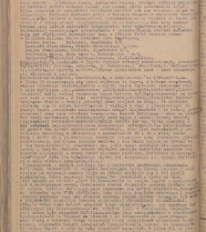 Witness
Witness
-
Topic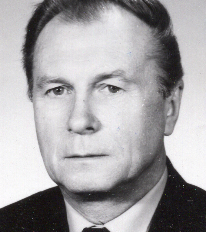 Witness
Witness
$creator
Topic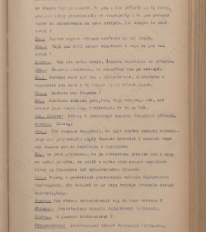 Witness
Witness
-
Topic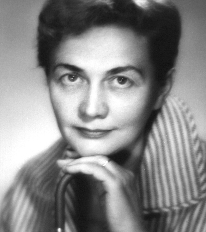 Witness
Witness
$creator
Topic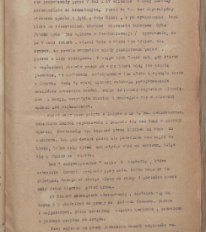 Witness
Witness
$creator
Topic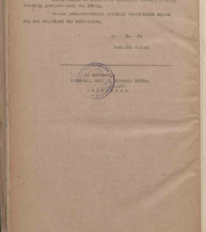 Witness
Witness
-
Topic
All documents in the testimony database of the Witold Pilecki Institute of Solidarity and Valor originating from the archives of the Institute of National Remembrance (their originals are stored in the archive of the Institute of National Remembrance) are made publicly available in accordance with the provisions of the Act of 18 December 1998 on the Institute of National Remembrance – Commission for the Prosecution of Crimes against the Polish Nation.
All documents from the archives of the Hoover Institution, based in the USA – the digital copies of which have been transferred in favor of the Institute by the National Digital Archives pursuant to an agreement concluded by and between the National Digital Archives, the Central Archive of Modern Records, the Hoover Institution, and the Witold Pilecki Institute of Solidarity and Valor – are made publicly available in accordance with the provisions of the Act of 14 July 1983 on National Archival Resources and Archives.
All materials from the archives of the Committee for the Commemoration of Poles who Saved Jews – the digital copies of which have been obtained by the Witold Pilecki Institute of Solidarity and Valor pursuant to an agreement concluded by and between the Committee and the Institute – are made publicly available in accordance with the provisions of the Act of 14 July 1983 on National Archival Resources and Archives.
On the basis of the agreement between the Katyn Museum – branch of the Polish Army Museum and the The Witold Pilecki Institute of Solidarity and Valor, the Institute has acquired digital copies of the materials from the collection of the Museum, which are made available in accordance with the Act of 14 July 1983 on the National Archival Resources and Archives.
Compositions written by Polish children on the subject of the Second World War from the collections of the Archives of Modern Records, the State Archives in Kielce, and the State Archives in Radom are made available by the Witold Pilecki Institute of Solidarity and Valor in accordance with the Act of 14 July 1983 on the National Archival Resources and Archives.
The “Chronicles of Terror” testimony database provides access to the Second World War accounts of Polish citizens, who suffered immense hardship at the hands of the German and Soviet totalitarian regimes. The repository features, among others, depositions given by witnesses to crimes committed by Nazi Germany during the occupation of Poland in the years 1939–1945. These accounts were held by the Main Commission for the Investigation of German Crimes in Poland and its legal successors. We also publish the testimonies of Poles who left the Soviet Union together with General Anders’ Army. These were collected from 1943 on by the Documentation Office of the Polish Army in the East. The depositions concerning Poles who helped Jews during the occupation were collected from 1999 on by the Committee for the Commemoration of Poles who Saved Jews. Accounts concerning the victims of the Katyn Massacre were collected by the historian Jędrzej Tucholski. At the end of the 1980s, he carried out a nation-wide campaign to gather information about the victims of the Soviet crime, by means of the “Zorza” Catholic Family Weekly. Children’s compositions about their wartime experiences were created in response to a competition organized in 1946 with the approval of the Ministry of Education. The competition was held in primary schools under the supervision of regional education authorities and school inspectorates. The essays were then deposited in the Archives of Modern Records and other state archives in Poland.
The accounts record the harrowing experiences of Polish citizens – victims of the terror of two totalitarian regimes. Many contain graphic details, and therefore should be accessed by minors only under adult supervision.
Documents available in the repository should be interpreted using the methods and tools of historical research. The contents of the depositions were affected by the circumstances in which they were made, as well as by the differing intentions of interviewers and interviewees. Sometimes, human memory proved fallible, while not all proceedings in which witnesses were heard ended in convictions.
On 26 February 2022 – two days after the Russian aggression – the Pilecki Institute established the Raphael Lemkin Center for Documenting Russian Crimes in Ukraine. In February 2023, we commenced the regular publication of questionnaires, filmed accounts, photographs and films documenting Russian crimes against Ukrainian civilians in the “Chronicles of Terror” database. For safety reasons, full access to these materials is possible only in the reading rooms of the Library of the Pilecki Institute in Warsaw in Berlin after obtaining necessary permissions.
We welcome all comments and remarks regarding the material published in our testimony database. It is of the utmost importance for us to obtain detailed information about witnesses and the people and events mentioned in these testimonies, for only in this way will it be possible for us to ensure their accurate, factual description. All remarks should be sent to the following address:
Please read our privacy policy. Use of the repository signifies your acceptance of its terms and conditions.
Witold Pilecki
Stawki 2
00-193 Warszawa





